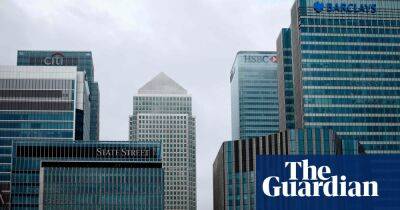The Guardian view on big finance: addicted to government handouts
It was Margaret Thatcher in 1981 who applied a special additional tax on the profits of banks that had experienced windfall gains during a period of excessively high interest rates. The Treasury has had similar thoughts in the run-up to the budget on 31 October. The idea is to revert to the former chancellor Rishi Sunak’s plans to raise corporation tax from 19% to 25% but drop Mr Sunak’s offsetting move to reduce the surcharge on bank profits to 3% from 8%. Banks complain that high taxes already undermine London’s competitiveness compared with rival European cities, with critics claiming it would be “ludicrous” to impose any more levies.
Yet there is a good argument to say that banks should face more taxation, not less. Interest rates have moved up two percentage points in less than a year – and the Bank of England says more rises are planned. This will mean juicy profits for high street names as the gap between the amount charged to borrowers and the interest paid on deposits widens. This windfall is down to high interest rates, not increased efficiency or better service to the customer. Ministers should tax such gains. Homeowners who face rapidly increasing mortgage costs will be furious to find banks’ profits doubling. Given that the public realm is about to be shredded, bankers should be ashamed to mention their bonuses in polite company.
Jeremy Hunt’s apparent endorsement of windfall taxes is not so much a Pauline conversion to leftwing policies as a necessary sop to placate the electorate. Banks have been lucky to get away so lightly, given that the sector was the cause of the financial crisis and ultimately its beneficiary through quantitative easing. Lenders are now receiving 2.25% on the reserves – up from 0.1%
Read more on theguardian.com



















